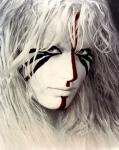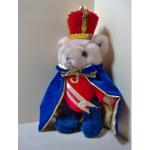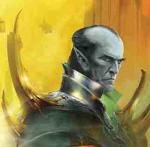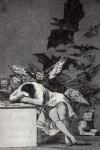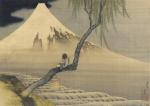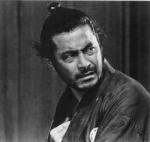Leo Grin posts a scathing editorial on modern fantasy - Abercrombie, Bakker, and others respond.
#41

Posted 17 February 2011 - 08:09 PM
Ah, sorry. i did have a little look but couldnt see another one. Cheers for telling me though.
#42

Posted 17 February 2011 - 08:48 PM
I just scrolled through the comments on Big Hollywood and it absolutely ASTONISHES me how many commenter's actually agree with Leo Grin's drivel.
Just wow.
Just wow.
"When the last tree has fallen, and the rivers are poisoned, you cannot eat money, oh no." ~Aurora
"Someone will always try to sell you despair, just so they don't feel alone." ~Ursula Vernon
"Someone will always try to sell you despair, just so they don't feel alone." ~Ursula Vernon
#43

Posted 17 February 2011 - 10:55 PM
Topics merged
"He was not a modest man. Contemplating suicide, he summoned a dragon". (Gothos' Folly)- Gothos
#44

Posted 18 February 2011 - 03:01 AM
 Pig Iron, on 17 February 2011 - 07:00 PM, said:
Pig Iron, on 17 February 2011 - 07:00 PM, said:
Tolkien is holy for me and I don't want people like mr Grin soiling his name by association. Werts piece was perfect. Tolkien said once that the LoTR was about death. He had been a soldier in the "Great War" and seen his entire generation wiped out. And it shows in his books.
Doubt the guy (who's been given much too much attention but it's fun bashing) has read Howard either. Maybe he liked the movie with the Gov in his steroid days?
Doubt the guy (who's been given much too much attention but it's fun bashing) has read Howard either. Maybe he liked the movie with the Gov in his steroid days?
Strangely, the guy is actually an acclaimed Howard scholar:
"Leo Grin (b. 1971) is a writer and filmmaker. His literary journal The Cimmerian (2004-2008), concerned with legendary pulp author Robert E. Howard, was twice nominated for the prestigious World Fantasy Award".
#45

Posted 18 February 2011 - 10:23 AM
Weird. Conan is hardly heroic fantasy. Werthead sums it up nicely.
#46

Posted 18 February 2011 - 11:10 AM
 Bombur, on 17 February 2011 - 07:19 AM, said:
Bombur, on 17 February 2011 - 07:19 AM, said:
Agreed @MST that Grin's idea of a fantasy epic fits tMBotF well. Shame Grin never bothered to read it, but instead relied on reader reviews from amazon. Not all the reader reviews mind you, just the two negative (2-star) ones.
Funnily enough, one of those two he did quote had a lot of glowing stuff to say about SEs skills further on in his review, and even said DoD ended on a high note. Now, I also liked the comment from some bitch for Grin to make a list of proper authors versus far left ones. Because grit equates communism, you know....
On the issue itself: apart from what HD already said, hitting the mark quite perfectly, the article is a polemic. Which is okay. It is a bad polemic, though, because it only compares, then denounces. Nowhere is there any depth to his article. Rather than being sharp, witty and providing reasons as to why the current trend is bad, Grin just goes black and white.
Too bad. 1/10 for trying.
Bakker, Abercrombie, Adam and the lady writer are much more thorough and intelligent in their own replies, with special kudos to Werthead for going to the roots of the genre and actually proving Grin even gets his base historical facts about the much celebrated origins of fantasy wrong.
Everyone is entitled to his own wrong opinion. - Lizrad
#47

Posted 18 February 2011 - 12:59 PM
I'd say that the problem is that, if you're going to call Erikson, Martin, etc 'nihilistic' then you can hardly not apply the term to a large number of other fantasy authors who certainly weren't ever trying to write 'nihilistic' fiction. David Gemmell for example, who from what I gather had a very firm 'moral compass' but, if you look at a lot of his work it really doesn't fit into the supposed Tolkien/Howard paradigm (which as Wert suggested doesn't really even exist) - (SPOILERS FOR GEMMELL NOVELS) Echoes of the Great Song chronicles the downfall of an entire civilisation, Legend sees Druss & co. hold off the Nadir until the few survivors are saved from total defeat by a rebellion within Ulric's ranks, but only a few generations later the Nadir conquer the Drenai led by the hero of The King Beyond the Gate (Tenaka Khan) and, finally, Waylander is given an opportunity to undo the terrible crime against his family that set him on his murderous path, dies believing he has succeeded, only for it to be heavily implied that he at least partially fails in this.
So, essentially, if you ignore the hope, heroism and idealism that is present in Erikson, Martin, etc, presumably because your conservative brain is too engrossed in the veneer of scatology, horror and profanity, then you might as well ignore all hope, heroism and idealism in all fantasy, or all literature for that manner. Furthermore, I am of the opinion that the 'darkness' of the 'New' Fantasy makes such positive elements shine all the brighter, for they are against a darker background and are necessary as redemptive, whereas if hope, heroism and idealism is placed in a candy floss wrapper of rainbow yums-yums, well, it's then rendered meaningless, saccharine and ultimately superfluous. I'd argue that fantasy cliches of Dark Lords and black & white good vs evil are very much now part of that safe, expected background for many fantasy readers, which is why a new darkness has been rendered necessary.
On an additional note, someone commenting on Wert's reply stated that he was confusing nihilism with tragedy when he asserted there were nihilistic elements in Tolkien. I think this is frankly were Grin fell down (deliberately) - Erikson, Martin, etc are tragic, not nihilistic, indeed classicly so in places, e.g. TTH SPOILER Rake's death reminded me a lot of (early) Nietzsche's characterisation of the death of the hero in Greek tragedy as being rendered meaningful because it reminds us of the ultimate unity of all being into which he subsides TTH SPOILERS END; Martin's Red Wedding is exemplary tragedy.
So, essentially, if you ignore the hope, heroism and idealism that is present in Erikson, Martin, etc, presumably because your conservative brain is too engrossed in the veneer of scatology, horror and profanity, then you might as well ignore all hope, heroism and idealism in all fantasy, or all literature for that manner. Furthermore, I am of the opinion that the 'darkness' of the 'New' Fantasy makes such positive elements shine all the brighter, for they are against a darker background and are necessary as redemptive, whereas if hope, heroism and idealism is placed in a candy floss wrapper of rainbow yums-yums, well, it's then rendered meaningless, saccharine and ultimately superfluous. I'd argue that fantasy cliches of Dark Lords and black & white good vs evil are very much now part of that safe, expected background for many fantasy readers, which is why a new darkness has been rendered necessary.
On an additional note, someone commenting on Wert's reply stated that he was confusing nihilism with tragedy when he asserted there were nihilistic elements in Tolkien. I think this is frankly were Grin fell down (deliberately) - Erikson, Martin, etc are tragic, not nihilistic, indeed classicly so in places, e.g. TTH SPOILER Rake's death reminded me a lot of (early) Nietzsche's characterisation of the death of the hero in Greek tragedy as being rendered meaningful because it reminds us of the ultimate unity of all being into which he subsides TTH SPOILERS END; Martin's Red Wedding is exemplary tragedy.
I am the Onyx Wizards
#48

Posted 18 February 2011 - 01:07 PM
 Kanubis, on 17 February 2011 - 06:31 PM, said:
Kanubis, on 17 February 2011 - 06:31 PM, said:
Hmm, my memory is obviously failing me, I could have sworn that LoTR ended with a psychologically traumatised Frodo unable to cope with the world anymore and leaving Middle Earth along with the Elves and stuff, leaving ME as a mundane place bereft of magic.
Hilariously, Grin is ignorant that Tolkien himself was similarly castigated by critics for this very reason when LOTR came out, because they were expecting LOTR to be Hobbit Part II. And the wheels on the bus go round and round...
OK, I think I got it, but just in case, can you say the whole thing over again? I wasn't really listening.
#49

Posted 18 February 2011 - 01:26 PM
@D'iversify
Can't agree more that Erikson is writing tragedy, not nihilism. I remember reading a quote from him somewhere that the main theme in tMBotF is the need for compassion in an increasingly dark world. Does not sound nihilistic to me.
Can't agree more that Erikson is writing tragedy, not nihilism. I remember reading a quote from him somewhere that the main theme in tMBotF is the need for compassion in an increasingly dark world. Does not sound nihilistic to me.
This post has been edited by Bombur: 18 February 2011 - 01:28 PM
#50

Posted 18 February 2011 - 02:05 PM
There's nothing wrong with wanting the world to be simpler, to be black and white, for it to be easy to identify the heroes and the villains. Indeed, from some perspectives it is desirable, or even necessary, to do so for a limited time in order to achieve a goal (e.g. in times of war).
IMO, the problem comes not because of the existence of that worldview, but because of its persistently being applied to reality to such a degree that the viewer cannot, in fact, see any other perspective as being valid (and indeed, often interprets other perspectives as an attack on the validity of their own).
I don't have a problem with Grin's article in its characterisation of Tolkien and Howard, simplistic as that grouping may be, as harking back to a simpler time. One of the things Tolkien was trying to do, after all, was to evoke a golden age of myth which would inevitably decay to our time. Likewise, there is no denying that some fantasy authors today write characters that are too grounded in reality to be considered heroes of the type that are prevalent in earlier fantasy. But tarring all contemporary writers with that brush is going a step too far, as there are clearly still some excellent writers of classic heroic fantasy working today.
I disagree with Grin's conclusion. But I don't think his perspective is invalid, and certainly not invalidated due to his political leanings. He may be ignoring some authors and highlighting others to make his point, but can we really deny that the authors he has chosen to shoulder the blame are not some of the currently most celebrated (rising) stars in fantasy? They will certainly be setting the tone for many would-be writers for some years. Heroic fantasy is still wildly popular, and one of the many appealing qualities of it (and I include WoT) is the clear distinction between the forces of good and evil. The intrusion of reality, modern ethics and knowledge of what real heroism (what a mealy-mouthed phrase!) actually consists of may tarnish that golden idealistic view of heroism, but fantasy remains one of the few genres in which it can be practically realised in fiction -- because only in fantasy can you have true evil as its opposition. (Which, incidentally, is part of what makes Covenant so interesting, because it opposes evil, not with good, but with rejection of both good and evil.)
If, then, the trendsetters in the genre continue to write tortured, morally ambiguous, flawed heroes, are they not, in some way, perpetuating what can be seen as the decay of heroism? I don't think it's coincidence that, in those works where there is real evil ™, it is generally opposed by real good. It is perhaps the trend towards depicting villains as motivated not by the desire to do evil pure and simple, but as complicated, real people with actual motivations and heroes of their own stories, that has led to the same corruption of pure good.
IMO, the problem comes not because of the existence of that worldview, but because of its persistently being applied to reality to such a degree that the viewer cannot, in fact, see any other perspective as being valid (and indeed, often interprets other perspectives as an attack on the validity of their own).
I don't have a problem with Grin's article in its characterisation of Tolkien and Howard, simplistic as that grouping may be, as harking back to a simpler time. One of the things Tolkien was trying to do, after all, was to evoke a golden age of myth which would inevitably decay to our time. Likewise, there is no denying that some fantasy authors today write characters that are too grounded in reality to be considered heroes of the type that are prevalent in earlier fantasy. But tarring all contemporary writers with that brush is going a step too far, as there are clearly still some excellent writers of classic heroic fantasy working today.
I disagree with Grin's conclusion. But I don't think his perspective is invalid, and certainly not invalidated due to his political leanings. He may be ignoring some authors and highlighting others to make his point, but can we really deny that the authors he has chosen to shoulder the blame are not some of the currently most celebrated (rising) stars in fantasy? They will certainly be setting the tone for many would-be writers for some years. Heroic fantasy is still wildly popular, and one of the many appealing qualities of it (and I include WoT) is the clear distinction between the forces of good and evil. The intrusion of reality, modern ethics and knowledge of what real heroism (what a mealy-mouthed phrase!) actually consists of may tarnish that golden idealistic view of heroism, but fantasy remains one of the few genres in which it can be practically realised in fiction -- because only in fantasy can you have true evil as its opposition. (Which, incidentally, is part of what makes Covenant so interesting, because it opposes evil, not with good, but with rejection of both good and evil.)
If, then, the trendsetters in the genre continue to write tortured, morally ambiguous, flawed heroes, are they not, in some way, perpetuating what can be seen as the decay of heroism? I don't think it's coincidence that, in those works where there is real evil ™, it is generally opposed by real good. It is perhaps the trend towards depicting villains as motivated not by the desire to do evil pure and simple, but as complicated, real people with actual motivations and heroes of their own stories, that has led to the same corruption of pure good.
It is perfectly monstrous the way people go about nowadays saying things against one, behind one's back, that are absolutely and entirely true.
-- Oscar Wilde
-- Oscar Wilde
#51

Posted 18 February 2011 - 02:28 PM
Quote
There's nothing wrong with wanting the world to be simpler, to be black and white, for it to be easy to identify the heroes and the villains. Indeed, from some perspectives it is desirable, or even necessary, to do so for a limited time in order to achieve a goal (e.g. in times of war).
I agree with this. There is nothing wrong with literature being that way, or wanting it to be that way.
Yet THAT is still no excuse for Grin to present only clear black and white in his own article on authors he only heard about from hearsay, nor does it excuse him from doing more thorough research on his own heroes (that may be excused by his own reading of them), nor does it excuse him as a fantasy critic/connaisseur from advocating to shun new niches he dislikes from the genre.
I love Tolstoy, but can't read Dostoyevski at gunpoint. Does that allow me to say the Brothers Karamazov is not really part of the 19th century russian literature, or say it is too gritty to be part of that stream because it deals with patricide instead of courtly love?
This post has been edited by Tapper: 18 February 2011 - 03:21 PM
Everyone is entitled to his own wrong opinion. - Lizrad
#52

Posted 18 February 2011 - 02:46 PM
 Tapper, on 18 February 2011 - 02:28 PM, said:
Tapper, on 18 February 2011 - 02:28 PM, said:
I love Tolstoy, but can't read Dostoyevski at gunpoint. Does that allow me to say the Brothers Karamazov is not really part of the 19th century russian literature, or say it is too gritty to be part of that stream because it deals with fratricide instead of courtly love?
In fact, I would say it's an entirely legitimate reason for saying so. And in saying so (if you in fact would, and were not suggesting you would merely to provide an example), you become part of the conversation, and open to counter-argument from others in that conversation.
The problem as I see it is that people are only listening to one side of the conversation, and not the whole. Cherry-picking the arguments they favour and ignoring those that don't match their own viewpoint. We are all guilty of this, to one degree or another, myself included. It's a struggle to overcome that tendency (and I've given up trying for some conversations on other topics, not on this forum).
It is perfectly monstrous the way people go about nowadays saying things against one, behind one's back, that are absolutely and entirely true.
-- Oscar Wilde
-- Oscar Wilde
#53

Posted 18 February 2011 - 02:49 PM
 Tapper, on 18 February 2011 - 02:28 PM, said:
Tapper, on 18 February 2011 - 02:28 PM, said:
Quote
There's nothing wrong with wanting the world to be simpler, to be black and white, for it to be easy to identify the heroes and the villains. Indeed, from some perspectives it is desirable, or even necessary, to do so for a limited time in order to achieve a goal (e.g. in times of war).
I agree with this. There is nothing wrong with literature being that way, or wanting it to be that way.
Yet THAT is still no excuse for Grin to present only clear black and white in his own article on authors he only heard about from hearsay, nor does it excuse him from doing more thorough research on his own heroes (that may be excused by his own reading of them), nor does it excuse him as a fantasy critic/connoisseur from advocating to shun new niches he dislikes from the genre.
I love Tolstoy, but can't read Dostoevsky at gunpoint. Does that allow me to say the Brothers Karamazov is not really part of the 19th century Russian literature, or say it is too gritty to be part of that stream because it deals with fratricide instead of courtly love?
Agreed. I think Grin invalidates his entire diatribe simply by descending into "team calling" us and them mentality and dismissing literature from the genre simply because he doesn't like what HE FEELS it represents. His entire essay is predicated on notion that these more modern darker fantasy tropes are essentially destroying fantasy as a genre. Leave aside the silly idea that LOTR and Conan aren't dark or don't fall right into the category he is dismissing on some levels, he is basically proving he has little grasp and as Wert said "misses the point" of those volumes.
The far right-wing ideas that pepper the article are neither here nor there when his very premise is ludicrous. He's not really arguing for black and white there. It's part of it, but the point is more the "destruction" of the genre by Abercrombie's, Erikson's, and Swanwick's ect. and how we all somehow allowed this to happen. That we should have kept fantasy to some mythical idea he had in his head of LOTR that it was altruistic and didn't mess up those involved in destroying the ring and that everyone came out the other end happy and healthy. You can even break it down further into the fact that ideas of black and white good and bad are really only on the surface, and deeper in we find many layers of grey.
"When the last tree has fallen, and the rivers are poisoned, you cannot eat money, oh no." ~Aurora
"Someone will always try to sell you despair, just so they don't feel alone." ~Ursula Vernon
"Someone will always try to sell you despair, just so they don't feel alone." ~Ursula Vernon
#54

Posted 18 February 2011 - 02:49 PM
Great post D'iversify. One way of looking at SE for instance, is that the black-and-white is denied; but not for relativism or nihilism but for compassion. Abercrombie is like SE, theres a strange sense of empathy there in the dirt. Bakker is more of a nihilist I think.
#55

Posted 18 February 2011 - 03:18 PM
 Tapper, on 18 February 2011 - 02:28 PM, said:
Tapper, on 18 February 2011 - 02:28 PM, said:
Quote
There's nothing wrong with wanting the world to be simpler, to be black and white, for it to be easy to identify the heroes and the villains. Indeed, from some perspectives it is desirable, or even necessary, to do so for a limited time in order to achieve a goal (e.g. in times of war).
I agree with this. There is nothing wrong with literature being that way, or wanting it to be that way.
Yet THAT is still no excuse for Grin to present only clear black and white in his own article on authors he only heard about from hearsay, nor does it excuse him from doing more thorough research on his own heroes (that may be excused by his own reading of them), nor does it excuse him as a fantasy critic/connaisseur from advocating to shun new niches he dislikes from the genre.
I love Tolstoy, but can't read Dostoyevski at gunpoint. Does that allow me to say the Brothers Karamazov is not really part of the 19th century russian literature, or say it is too gritty to be part of that stream because it deals with fratricide instead of courtly love?
Tapper you touch on something interesting here, and that would be my first question for Leo Grin - does this same invective apply to other genres, or is it just fantasy? Would he dismiss (off the top of my head) the works of Aldous Huxley because of their moral ambiguity? Vonnegut? An entire slew of postmodern fiction writers that I'm too lazy to enumerate?
I can get behind the argument that nihilism as a world view is bankrupt. But toying with nihilistic motifs in a literary work, and as a literary device, does not render that work "nihilistic." Nor is it bankrupt. If it was, then there's a host of Western works that good ol' Leo Grin will have to chuck in the bin beside Abercrombie, Bakker and Erikson, not nearly all of them fantasy. He could start with the modern day Bible - last I checked the whole first half is daughters banging fathers after their mothers have been reduced to pillars of salt, women getting their hands chopped off if they grab a man by the balls, children being murdered by a Holy Ghost (who we're meant to root for) and so on and so forth.
The human condition is bleak. That Erikson and Abercrombie and others are elucidating and exploring this notion in their works is neither bankrupt, nor new to fantasy, as Abercrombie and Wert and dozens of others have pointed out. God knows this was one of the very themes Tolkien was working with in the stories of Frodo and Gollum in particular.
This post has been edited by Ciceronian: 18 February 2011 - 03:25 PM
#56

Posted 18 February 2011 - 03:42 PM
 jitsukerr, on 18 February 2011 - 02:46 PM, said:
jitsukerr, on 18 February 2011 - 02:46 PM, said:
 Tapper, on 18 February 2011 - 02:28 PM, said:
Tapper, on 18 February 2011 - 02:28 PM, said:
I love Tolstoy, but can't read Dostoyevski at gunpoint. Does that allow me to say the Brothers Karamazov is not really part of the 19th century russian literature, or say it is too gritty to be part of that stream because it deals with fratricide instead of courtly love?
In fact, I would say it's an entirely legitimate reason for saying so. And in saying so (if you in fact would, and were not suggesting you would merely to provide an example), you become part of the conversation, and open to counter-argument from others in that conversation.
The problem as I see it is that people are only listening to one side of the conversation, and not the whole. Cherry-picking the arguments they favour and ignoring those that don't match their own viewpoint. We are all guilty of this, to one degree or another, myself included. It's a struggle to overcome that tendency (and I've given up trying for some conversations on other topics, not on this forum).
Well, I've been appreciating the different point of view you bring to the table, for various threads. It's refreshing and adds to the discussion.
#57

Posted 19 February 2011 - 08:53 PM
tbh the whole piece comes across to me as the writer simply saying: "People should not write books that I don't like!", which strikes me as entitled beyond belief. But as this is coming from a leading light of the US Right, that isn't all that much of a surprise.
If an opinion contrary to your own makes you angry, that is a sign that you are subconsciously aware of having no good reason for thinking as you do. If some one maintains that two and two are five, or that Iceland is on the equator, you feel pity rather than anger, unless you know so little of arithmetic or geography that his opinion shakes your own contrary conviction. … So whenever you find yourself getting angry about a difference of opinion, be on your guard; you will probably find, on examination, that your belief is going beyond what the evidence warrants. Bertrand Russell
#58

Posted 19 February 2011 - 11:29 PM
What an odd little man this Grin must be. The expression 'head up his own arse' was made for such as he. The staggering arrogance of the 'I am sure Tolkien and Howard would agree...' is appalling and indicative of where he sees himself in the world. What strikes me as truly tragic is that I believe that a rant against where Fantasy is and where it is going and how it has fallen, born of his despair of modern writers having somehow abused or brought shame upon the inheritance of Tolkien and Howard, actually only serves to damage the genre he supposedly loves (or once loved).
I despair of small-minded people who believe there is only one way to do something and that the only right way is the way they believe. Fantasy is about the imagination and the suspension of disbelief. It is, as Howard believed, pure escapism to take us to the worlds that might be. What it is not, however, is subject to the restrictions of one man who is weeping over some imagined lost childhood. The writers he pans are the very ones pushing the boundaries of literature (amongst many others), the entire point of which is to show that literature, whatever the genre, should welcome very reshaping and challenge to evolve and become 'more'. In such ways do we explore the possibilities of language and creation. We do not achieve this by bemoaning the very people who create and crying over how they do it. Literature grows and evolves and shapes and is shaped by the times and the world within which it exists. People like Grin clearly do not understand this.
I despair of small-minded people who believe there is only one way to do something and that the only right way is the way they believe. Fantasy is about the imagination and the suspension of disbelief. It is, as Howard believed, pure escapism to take us to the worlds that might be. What it is not, however, is subject to the restrictions of one man who is weeping over some imagined lost childhood. The writers he pans are the very ones pushing the boundaries of literature (amongst many others), the entire point of which is to show that literature, whatever the genre, should welcome very reshaping and challenge to evolve and become 'more'. In such ways do we explore the possibilities of language and creation. We do not achieve this by bemoaning the very people who create and crying over how they do it. Literature grows and evolves and shapes and is shaped by the times and the world within which it exists. People like Grin clearly do not understand this.
Victory is mine!
#59

Posted 19 February 2011 - 11:49 PM
Actually, I think I'm going to disagree with that last sentence. I think the piece is entirely motivated by the fact that Grin does understand this. His primary thesis would appear to be that this is a bad thing. He wants fantasy to remain the genre he read - or rather misread, given how he mangles both Howard and Tolkien - as a youth; growth and (dare I say it) evolution are anthema to him.
He doesn't want to see new takes on the fantastic and abhors both those who do and those who write it, because that would imply that these people are thinking different thoughts to him and that just won't do.
He doesn't want to see new takes on the fantastic and abhors both those who do and those who write it, because that would imply that these people are thinking different thoughts to him and that just won't do.
If an opinion contrary to your own makes you angry, that is a sign that you are subconsciously aware of having no good reason for thinking as you do. If some one maintains that two and two are five, or that Iceland is on the equator, you feel pity rather than anger, unless you know so little of arithmetic or geography that his opinion shakes your own contrary conviction. … So whenever you find yourself getting angry about a difference of opinion, be on your guard; you will probably find, on examination, that your belief is going beyond what the evidence warrants. Bertrand Russell
#60

Posted 20 February 2011 - 01:11 AM
Yes, SM, I believe you are right. He knows exactly what he is doing. The turd.
Victory is mine!

 Help
Help


